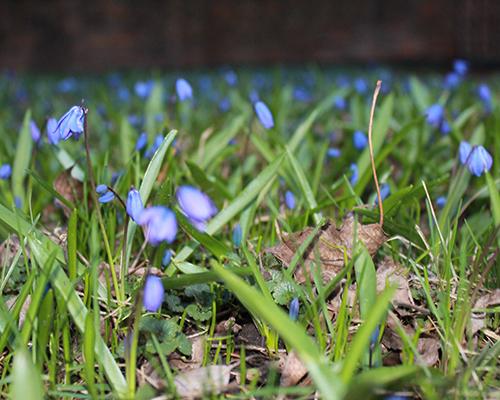By Dot Armstrong
Although you folks reading this column don’t agree on the type or provenance of our food, the availability of food itself is an obvious source of common ground. In the words of Bruno Borsari, “If you don’t eat, you die.” Borsari, a professor in my hometown, happens to be an amateur beekeeper. The natural subtext of his quotable aphorism: If the bees die, so do you.
Bees — and other lesser-known pollinators such as hummingbirds, bats, beetles, and butterflies — are the unsung heroes of food production. The efforts of vertebrate and invertebrate pollinators ensure the continued function of global food networks; 35 percent of crops worldwide rely on the fertilizing power of pollinators. That volume is valued at as much as $577 billion per year.
And, as you might have guessed, these diligent workers are in trouble. I wish I could explain the cause, but scientists can’t yet pinpoint the source of the problem. What it comes down to is a complex network of stressors to pollinators’ well-being. A toxic combination of monoculture, pesticides (neonicotinoids are often singled out as the worst of the bunch), GMOs, pests (notable among them is the varroa mite), and temperature anomalies caused by global climate change leave pollinators vulnerable, their populations depleted each year. Though these partners in food production provide invaluable assistance to us, we’ve forgotten to include them in our equations of growth and expansion. Talk about exploited labor.
Many environmentalists see the trends of pollinator population decline as cause for alarm, if not despair. I agree that it’s a serious problem. Without pollinators, we lose most fruits and vegetables. But I’m not ready to give up; rather, I’m going to ask you to keep reading. Loss of pollinators is cause for awareness and action, above all.
Luckily, the plight of the pollinators has gotten some press around Iowa City. Project GREEN led an annual garden tour last weekend, focusing on “Bee Friendly” garden design. Such an effort may seem trivial. A few well-maintained pollinator habitats in residential yards aren’t going to reverse the effects of chemical sprays and intensive single-crop cultivation on a global scale. Yes, those community members featured for their pollinator-positive plants have the money to invest in such a project. Qualifying statements aside, creating local bee habitats is a concrete action. It’s an effort to dispel fatalism; it’s a signal of community consciousness. To me, it’s a step in the right direction.
What I’d like to see now is a city-wide effort to make all plantings as pollinator-friendly as possible. Those useless petunias on the Pentacrest? Replace them with native perennials, such as butterfly weed, baptisia, coneflower, goldenrod, and aster. If the university, the city, and local businesses spend money on planting, make those plantings matter. It’s time to sacrifice conventional landscaping practices for sustainable “bee-friendly” strategies.
If you’re looking for something to stress about besides the havoc the current administration seems to be wreaking, turn your attention to the complex politics of gardens, produce, and pollinators. Dying bees (and bats and butterflies) affect all of us. Check out the Xerxes Society, the National Pollinator Garden Network, and Project GREEN to learn more.










